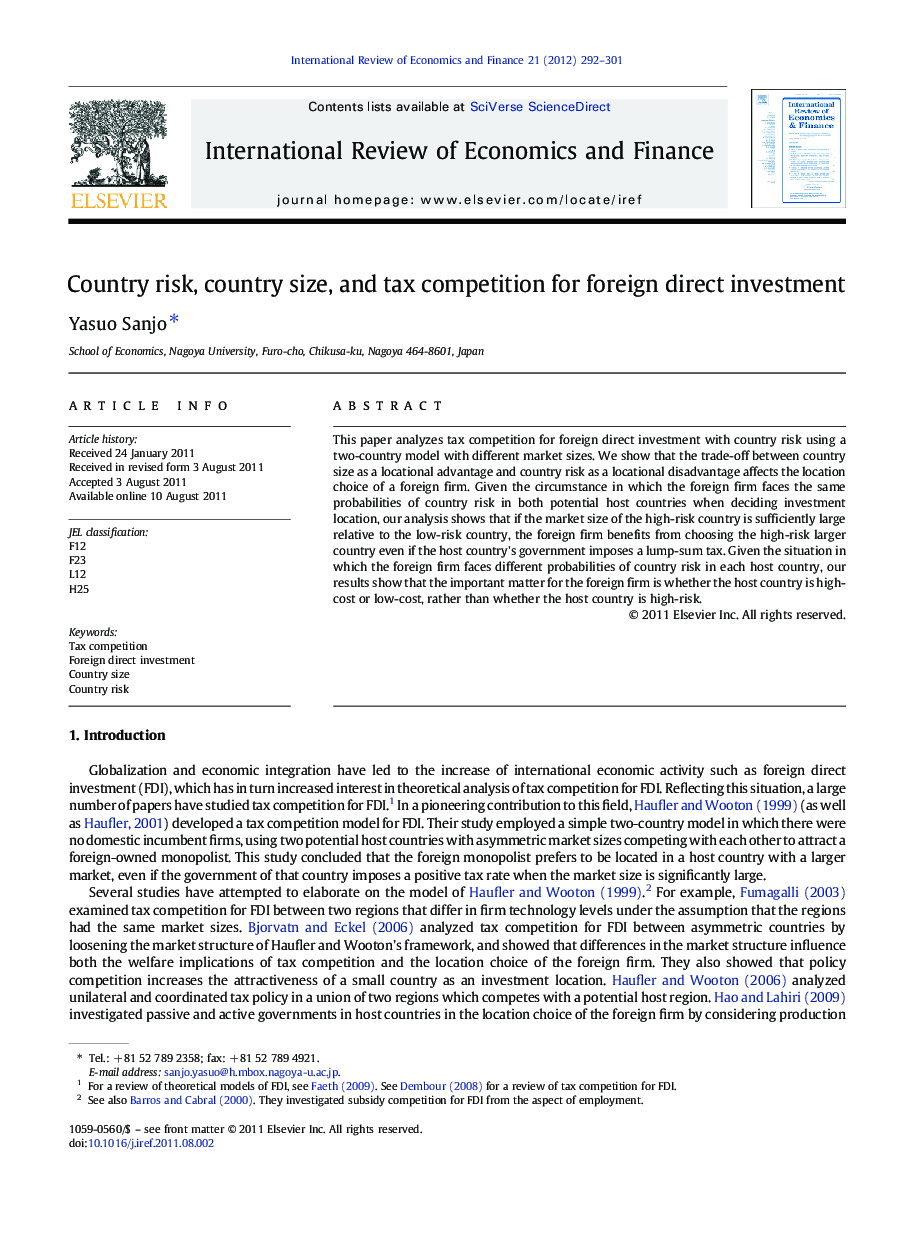| Article ID | Journal | Published Year | Pages | File Type |
|---|---|---|---|---|
| 5083949 | International Review of Economics & Finance | 2012 | 10 Pages |
Abstract
This paper analyzes tax competition for foreign direct investment with country risk using a two-country model with different market sizes. We show that the trade-off between country size as a locational advantage and country risk as a locational disadvantage affects the location choice of a foreign firm. Given the circumstance in which the foreign firm faces the same probabilities of country risk in both potential host countries when deciding investment location, our analysis shows that if the market size of the high-risk country is sufficiently large relative to the low-risk country, the foreign firm benefits from choosing the high-risk larger country even if the host country's government imposes a lump-sum tax. Given the situation in which the foreign firm faces different probabilities of country risk in each host country, our results show that the important matter for the foreign firm is whether the host country is high-cost or low-cost, rather than whether the host country is high-risk.
Related Topics
Social Sciences and Humanities
Economics, Econometrics and Finance
Economics and Econometrics
Authors
Yasuo Sanjo,
